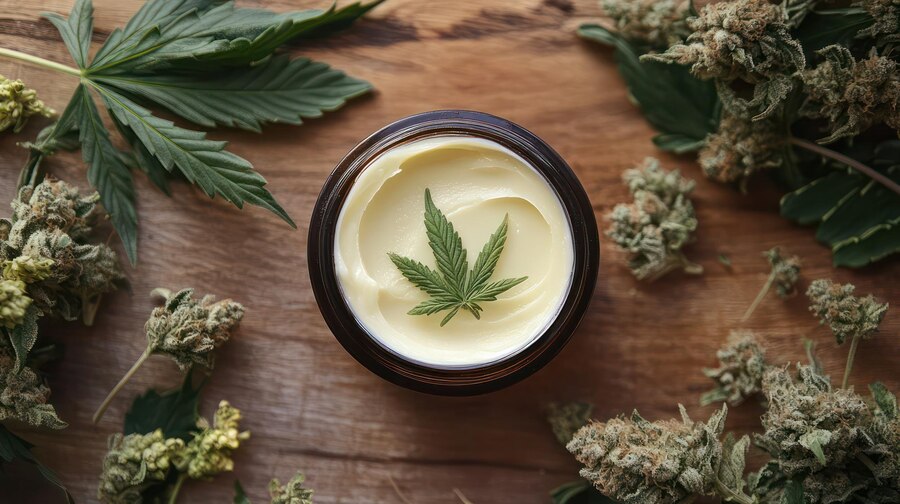Table of contents
In today’s world, where holistic and alternative treatments are becoming increasingly popular, many individuals are seeking natural options for managing chronic and acute pain. Among the most discussed solutions are CBD products, herbal medicines, and traditional natural therapies. In this article, we dive into CBD and Other Natural Remedies for Pain, exploring how they compare, their effectiveness, and how you can decide what might work best for you.
What Is CBD?

CBD, or cannabidiol, is a compound found in the cannabis plant. Unlike THC, CBD is non-psychoactive, meaning it doesn’t cause a “high.” Research has shown that CBD can help reduce pain, inflammation, and anxiety, making it a promising alternative for those looking to manage discomfort without the side effects of traditional pharmaceuticals.
CBD interacts with the body’s endocannabinoid system (ECS), which plays a role in regulating pain, mood, and immune function. Its natural ability to promote balance within the body is a key reason for its growing popularity in the wellness community.
Common Natural Remedies for Pain

Aside from CBD, several natural remedies have been historically used to manage pain, including:
- Turmeric: Contains curcumin, known for its strong anti-inflammatory properties.
- Willow Bark: Sometimes referred to as “nature’s aspirin,” it has been used for centuries for pain relief.
- Capsaicin: Derived from chili peppers, often used in topical creams to alleviate joint and muscle pain.
- Ginger: Offers anti-inflammatory and analgesic effects, especially beneficial for muscle soreness and arthritis.
- Arnica: A homeopathic remedy commonly applied topically to treat bruises, sprains, and muscle pain.
Each of these natural treatments works through different mechanisms and has varying levels of scientific support.
Comparing CBD and Other Natural Remedies for Pain
1. Mechanism of Action
- CBD works directly with the ECS to regulate pain perception and inflammation.
- Turmeric and Ginger mainly combat inflammation through antioxidant pathways.
- Willow Bark operates similarly to aspirin by blocking pain-inducing chemicals in the body.
2. Forms of Usage
- CBD: Available in oils, tinctures, capsules, topicals, and edibles.
- Other Remedies: Typically found as supplements, teas, topical creams, or extracts.
3. Speed of Relief
- CBD: Many users report relief within 30 minutes to an hour, especially with sublingual use.
- Herbs like turmeric: Often require days or weeks of consistent use to see significant results.
4. Side Effects
- CBD: Generally well-tolerated; potential side effects include fatigue, diarrhea, and changes in appetite.
- Other Natural Remedies: Some, like willow bark, can cause stomach upset and increase bleeding risk, similar to NSAIDs.
5. Scientific Backing
- CBD: Backed by a growing body of clinical research, particularly for chronic pain and inflammation.
- Traditional Remedies: Many have centuries of anecdotal use, with increasing modern scientific interest, but often lack large-scale clinical trials.
Which Is Better for Pain Relief?
There’s no one-size-fits-all answer when comparing CBD and Other Natural Remedies for Pain. It largely depends on the type of pain, individual health conditions, and personal preference. CBD may offer faster and more targeted relief for some, especially for conditions involving nerve pain, inflammation, or anxiety-linked pain.
Conversely, remedies like turmeric and ginger are excellent for ongoing inflammation and general wellness support. Some individuals even find that combining CBD with other natural remedies provides the best results, creating a holistic approach to pain management.
FAQs about CBD and Other Natural Remedies for Pain
CBD may provide quicker relief due to its interaction with the ECS, while turmeric often requires long-term use to achieve anti-inflammatory benefits.
Yes, many people use CBD alongside supplements like turmeric or ginger for synergistic effects. However, it’s advisable to consult a healthcare provider first.
CBD is generally safe, but it can interact with medications. Herbal remedies like willow bark may also cause side effects, particularly for people with certain health conditions.
Consider the type of pain, how quickly you need relief, your overall health, and whether you prefer internal or topical treatments.
In many places, CBD derived from hemp (with less than 0.3% THC) is legal. However, always check your local regulations before purchasing or using CBD products.
Conclusion
As the search for natural pain relief continues, both CBD and traditional remedies offer promising options. Understanding the differences between CBD and Other Natural Remedies for Pain can help you make an informed decision based on your specific needs and health goals. Whether you choose CBD, turmeric, ginger, or a combination of these therapies, the key is finding a solution that supports your overall wellness and lifestyle.
Always consult with a healthcare provider before starting any new treatment to ensure it’s safe and appropriate for your condition.





